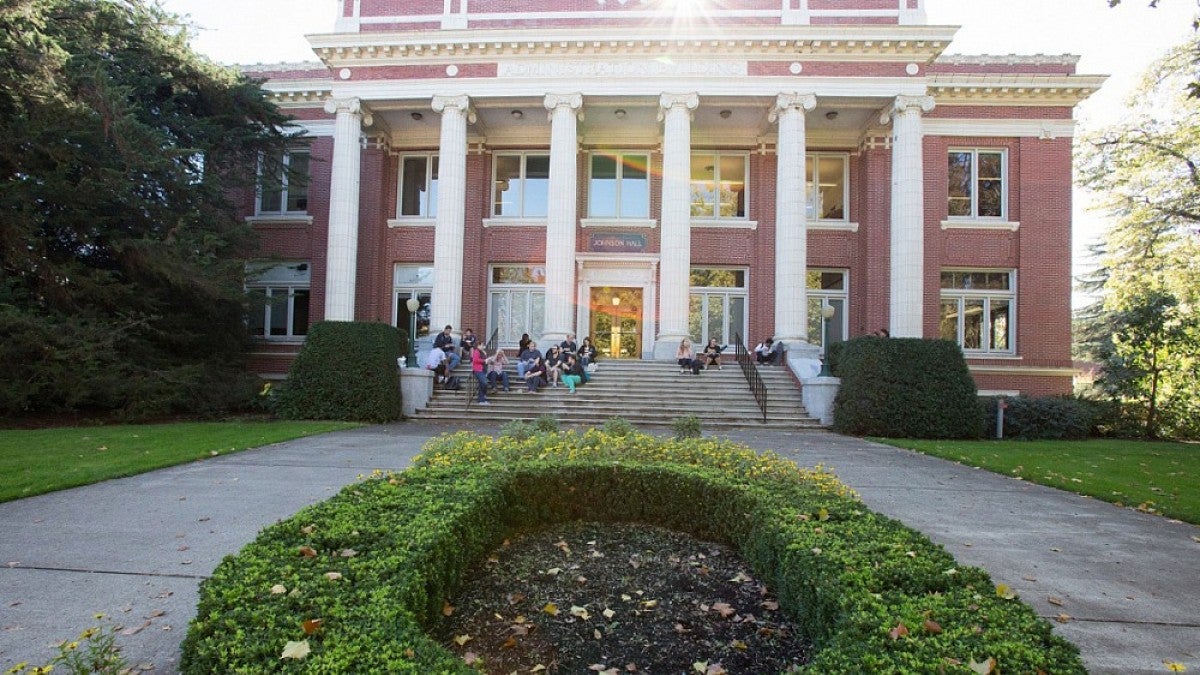Four UO faculty members will serve as the inaugural participants for teaching, mentorship and leadership positions in the new Provost Fellows Program.
Launched at the beginning of the year, the fellowship program is designed to support faculty members and provide professional development opportunities for those interested in academic leadership. The fellows will work on high-priority projects linked to campus initiatives: inclusive teaching, culturally responsive mentoring, and inclusive and transformational leadership.
The fellows are two political science professors, Anita Chari and Alison Gash, from the College of Arts and Sciences; Maile Hutterer, associate professor in the Department of the History of Art and Architecture in the College of Design; and Emily Simnitt, senior instructor in English, also from the College of Arts and Sciences.
Each faculty member will receive three course releases, one per academic term, and a $5,000 stipend for the summer.
The four recipients will be under the direction of Janet Woodruff-Borden, the executive vice provost for academic affairs, and will work closely with the provost leadership team. They will also collaborate with academic colleagues across campus.
“We are excited to begin work with our four inaugural fellows,” Woodruff-Borden said. “This program is a centerpiece of the Office of the Provost’s faculty support initiatives. It brings faculty perspective and engagement to our ongoing work on these important initiatives, while providing these faculty with the resources to grow as academic leaders.”
Provost and Senior Vice President Patrick Phillips sees the new program as a way to break down barriers and provide incentive for faculty members to consider ways they can contribute to leadership in a variety of academic arenas.
“I’ve always said that leadership isn’t just a title next to someone’s name. It’s so much more about service to the institution and the greater good of our students,” Phillips said. “This first group of fellows is important to the UO for a number of reasons: their individual experiences, their scholarship and their commitment to making the academic world a better place.”
Chari said her 12-month project will bring a focus on addressing the reality that historical trauma and oppression lives within the body and not just within the intellect. She plans to work on building a teaching program focused in trauma informed, anti-oppressive pedagogy that intersects with diversity, equity and inclusion.
“Resourcing faculty with trauma-informed tools can support transformative learning, create social connection, and help us collectively to feel more settled and secure in our classrooms, while deepening conversations about social justice on our campus,” Chari said.
In her research, Chari said she has found that it is important to focus on the body and feelings when learning, rather than the mental aspect. Using tools of nervous system regulation, such as deep breathing, and self-reflection can help in the classroom.
Gash’s plan includes creating spaces to help the university identify what faculty members and students need, and to create strategies for centering questions of power and resilience across a variety of disciplines.
“My students are a constant inspiration,” Gash said. “I have learned so much from them in the courses I teach on civil rights and social justice.”
She said what stands out to her about students is “their willingness to take risks, to expand and challenge their own perspectives, to listen and learn from each other and to share their own experiences and insights.”
Hutterer said she was drawn to the mentoring fellowship after observing room to improve the culture of mentorship on campus.
“Mentoring is a critical contributor to professional development and career success,” she said. “Establishing a practice of culturally responsive mentorship at the UO will contribute to the individual success of its students, faculty and staff, and our collective success as a public research university.”
She will focus on culturally responsive mentoring, the notion of understanding people as individuals and mentoring through the lens of the other person. She plans to explore opportunities to present campus forums, offer workshops in various campus departments and establish formal mentoring groups.
Simnitt, a graduate of the Provost’s Leadership Academy, said she views leadership as a set of practices and values rather than a position.
“One of the things that I’m really committed to in all of my work is working towards a more culturally responsive campus,” Simnitt said. “This is a campus where everyone feels a sense of belonging and a sense of purpose. People should be able to feel like they belong so that they can work from their strengths and work towards change.”
Simnitt said she wants to expand the reach of the Leadership Academy, assess existing opportunities in leadership development and establish a new peer leadership partner program that will connect graduates of the academy with campus leaders.
Chari, Gash and Hutterer each have begun their fellowships, while Simnitt will start in the summer.
Learn more about the Provost Fellows Program on the Office of the Provost website.
—By Kaitlyn Jimenez, University Communications


